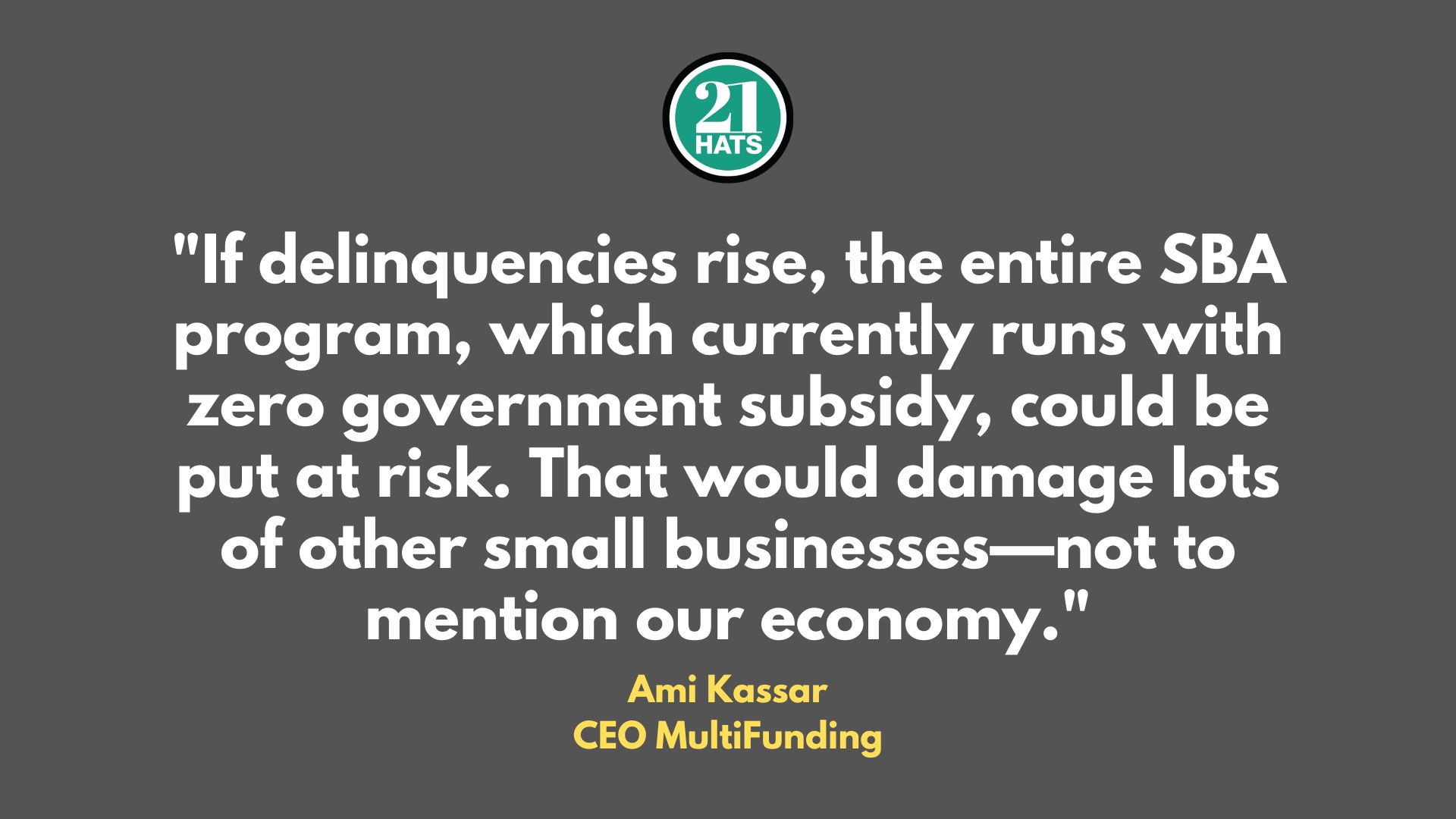There Are Better Ways to Help Underserved Entrepreneurs

Easing restrictions to allow alternative lenders to make SBA loans is not the answer.
By Ami Kassar
Last week, I visited Washington, D.C., to add my two cents to the current debate about easing requirements and rules to allow fintech lenders to make Small Business Administration loans. Those who support these changes believe they will put more capital into the hands of underserved entrepreneurs.
Let me be clear: I am 100 percent in favor of creating the infrastructure and scaffolding to give everyone who wants to start a company in this country their best possible chance of success. This goal is essential and critical to economic equality and our future. And it’s a BHAG—a big hairy audacious goal—that will not be solved overnight. It will take at least a decade, if not more, to make a difference.
That said, the current proposal to allow alternative lenders into the SBA program with lighter rules and regulations, is shortsighted and flawed. We need to slow down and refocus.
Fast access to capital is not the answer to the problems of most small businesses. When you take a loan, you need to pay it back. And if you don’t have a solid business plan and team around you to support your loan, the chances are very good that you will fail. A delinquent debt to the United States government is not a good mark on a budding entrepreneur’s resume.
Likewise, if delinquencies rise, the entire SBA program, which currently runs with zero government subsidy, could be put at risk. That would damage lots of other small businesses—not to mention our economy. Most important, if we want to help underserved entrepreneurs, there are much better ways to do it.
We need to double, triple, or quadruple the resources we are putting into underserved communities to help with entrepreneurship. And we need to make this a combined effort of government, private enterprise, and academia. Just as we have Teach for America, we need more programs that expose college graduates to entrepreneurship.
One night during the Pandemic, I was asked to teach a virtual SBA class for a female entrepreneurship group at an African American church. About a dozen women on Zoom were trying to get side hustles off the ground. The session was supposed to last an hour, and my SBA slide deck was ready.
As the session began, I quickly realized that the last thing any of these entrepreneurs needed was a loan. You see, like many entrepreneurs, they thought they needed more money to get started than they really did. So the PowerPoint was never opened that night. Instead, we worked for hours breaking down their plans one by one. In every case, there were more straightforward and less expensive ways to test their concept and get it off the ground.
For example, one woman wanted to start a business baking desserts for restaurants. She was convinced that she needed to borrow $50,000 to open a kitchen. She hadn’t considered that she could prove her concept by baking in her home kitchen or renting a kitchen during off hours at a local restaurant.
But here’s the thing: I have little doubt that if a fintech lender were to offer these budding entrepreneurs an SBA loan that would land in their bank accounts in a few days, every one would jump on it. And then, if the loans were approved, most of the women would have a liability on their hands that they were not yet prepared to handle.
Let’s do everything we can to serve underserved entrepreneurs, but let’s be smart about it.
Ami Kassar is co-founder of MultiFunding.